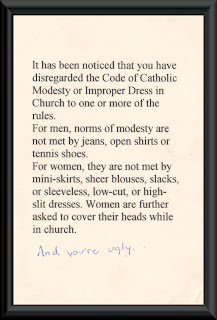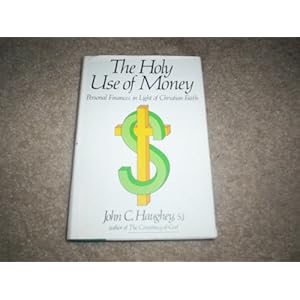It's hard to imagine just exactly how this bibliosite was used before it became a bibliosite:
Was this a notice that the usher would slip into your hand during the offertory? Did this arrive in your mailbox after Sunday? Would it turn up in your sock drawer?
And just who did the noticing in the first place? Where can one find the "Code of Catholic Modesty or Improper Dress"?
"And you're ugly" - was this written as an extra barb or in retaliation towards the person who originally gave notice. We may never know.
One thing I do appreciate about this card is that it clearly lays out measurable modesty standards. Everybody knows that it is important to be modest, but I rarely if ever hear of clearly modest standards. This card has them (guess I better button up my shirt in church now!).
Please feel free to print out copies of this card for use as you see fit. Just how would YOU use such cards?
Share |


